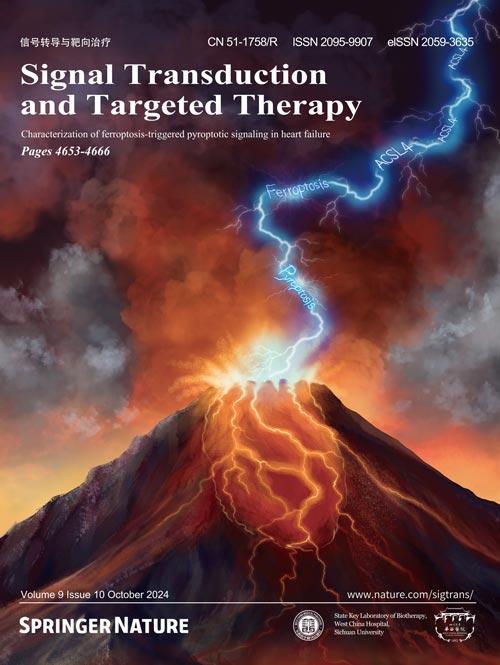Volume 9 Issue 10, Oct 2024:
Article
Characterization of ACTN4 as a novel antiviral target against SARS-CoV-2
Miao Zhu,Fang Huang,Huize Sun,Kunpeng Liu,Zhen Chen,Baocheng Yu,Haojie Hao,Haizhou Liu,Shuang Ding
ORCID: orcid.org/0000-0002-9810-8428,Xueyan Zhang,Lishi Liu,Kui Zhang,Jierao Ren,Yi Liu,Haibin Liu
ORCID: orcid.org/0000-0003-3601-6066,Chao Shan &…Wuxiang Guan
ORCID: orcid.org/0000-0002-2415-4659
The various mutations in severe acute respiratory syndrome coronavirus 2 (SARS-CoV-2) pose a substantial challenge in mitigating the viral infectivity. The identification of novel host factors influencing SARS-CoV-2 replication holds potential for discovering new targets for broad-spectrum antiviral drugs that can combat future viral mutations. In this study, potential host factors regulated by SARS-CoV-2 infection were screened through different high-throughput sequencing techniques and further identified in cells. Subsequent analysis and experiments showed that the reduction of m6A modification level on ACTN4 (Alpha-actinin-4) mRNA leads to a decrease in mRNA stability and translation efficiency, ultimately inhibiting ACTN4 expression. In addition, ACTN4 was demonstrated to target nsp12 for binding and characterized as a competitor for SARS-CoV-2 RNA and the RNA-dependent RNA polymerase complex, thereby impeding viral replication. Furthermore, two ACTN4 agonists, YS-49 and demethyl-coclaurine, were found to dose-dependently inhibit SARS-CoV-2 infection in both Huh7 cells and K18-hACE2 transgenic mice. Collectively, this study unveils the pivotal role of ACTN4 in SARS-CoV-2 infection, offering novel insights into the intricate interplay between the virus and host cells, and reveals two potential candidates for future anti-SARS-CoV-2 drug development.
